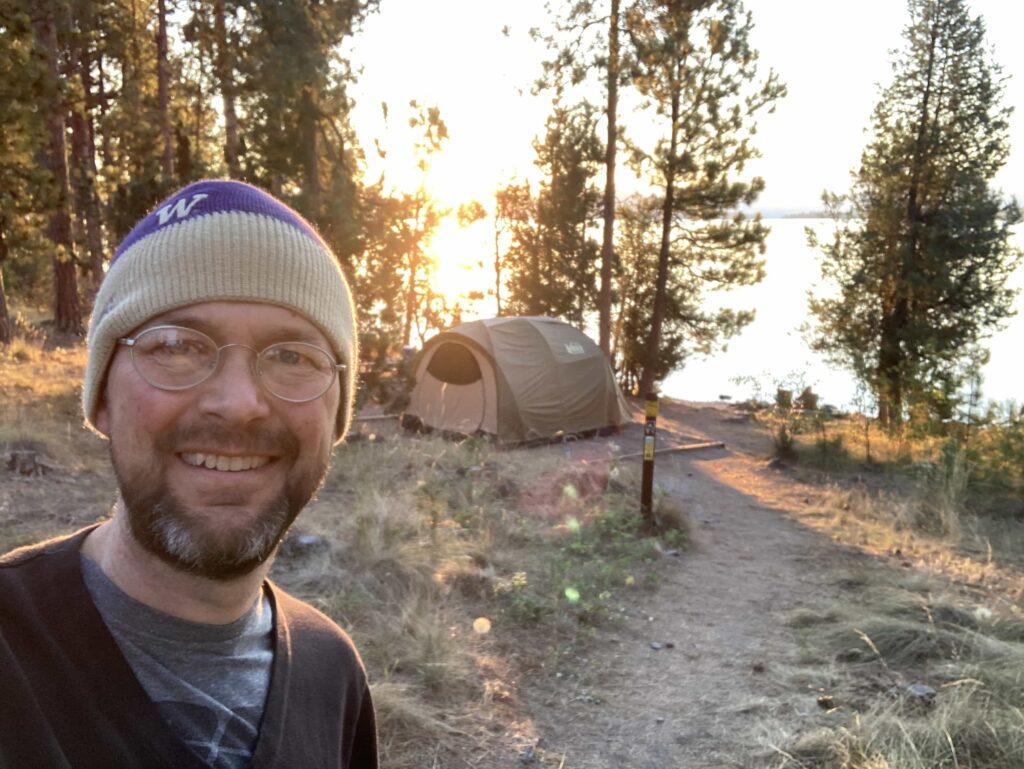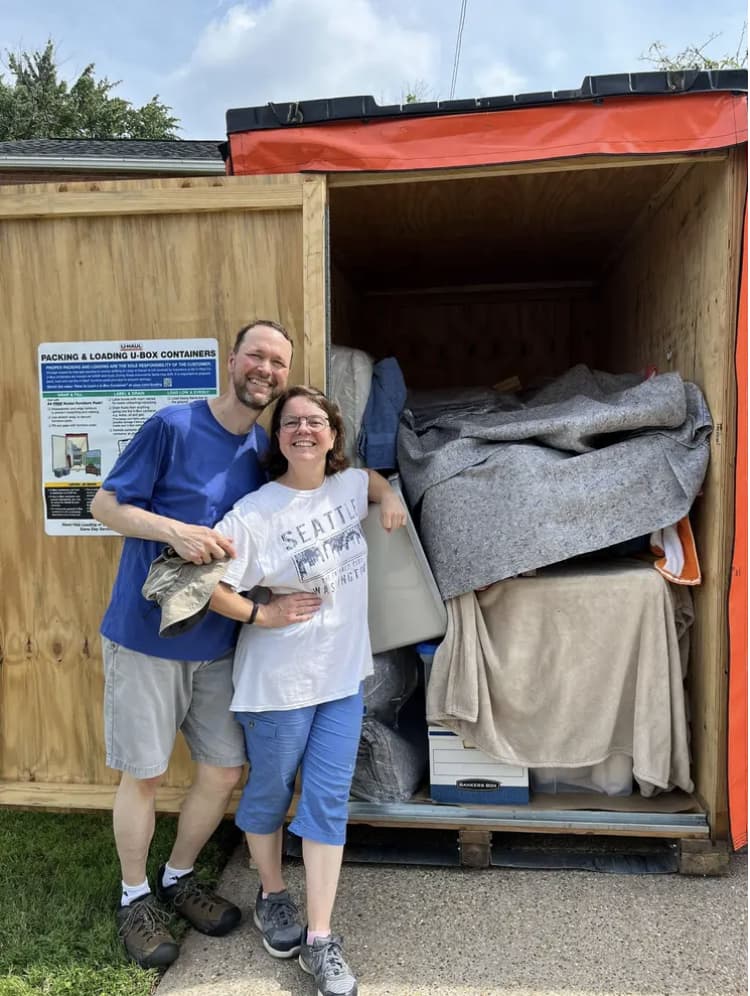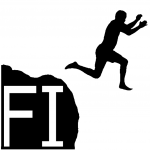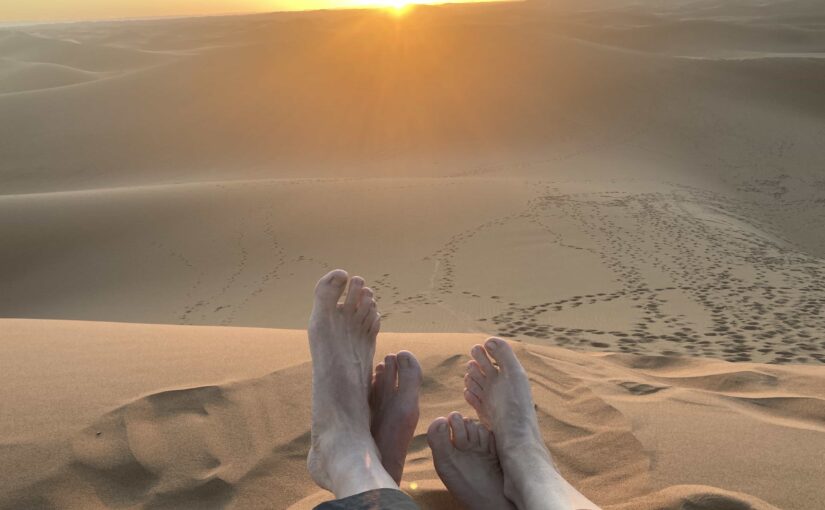Minimalism has had a profoundly positive impact on my life. I’m healthier and calmer, I have more time and flexibility with money, and I’m more content overall. In an effort to share why I have chosen a minimalist life and why it is so rewarding to me, here are my eight benefits of being a minimalist:
1. More Time to Focus on What I Value
Minimalism helped me focus on my highest priorities. By getting rid of the physical things from activities that were not my highest priorities (e.g., canning equipment, guitar and musical gear, biking gear, and old collections), I was able to shift the pieces of time spent on each of these lower-priority pursuits to my more important priorities. I now have more time to travel, be with family and friends, take care of myself, be outdoors, and follow my curiosity.
By pursuing these top priorities and letting go of the rest, I found I didn’t need 98% of my belongings and I became a different person in the process. The exact percentage isn’t important—the number will vary from person to person—but I think almost everyone’s personal belongings will significantly decrease when we focus on only those priorities that truly matter to us and let go of all the stuff belonging to lower priorities. Now I spend a lot less time researching, buying, repairing, cleaning, and disposing of stuff I don’t need. This provides me an enormous amount of time to do what I value most.
I also save time managing all that stuff. During my years as an active duty military member, I moved houses 13 times in 20 years. By my 5th move, I had 5 sets of heavy-duty metal shelving for garage or basement storage and 6 sets of tall plastic shelves for closets, utility rooms, and attic storage. Every move I would spend hours (days?) getting our 17,000 lbs of possessions stacked and stored. Many of the boxes I never even opened between moves, but often shuffled them around to reach other boxes. I would frequently open and dig through numerous boxes trying to find something I thought I had—wasting valuable time. When I got rid of all that stuff, I reclaimed my time.

2. More Money to Focus on What I Value
Similar to freeing up time to do what I value most, minimalism frees up thousands of dollars to invest or spend on the things I value most. Minimalism has freed me from the desire for more stuff to manage, clean, organize, and store. I no longer buy souvenirs or collectibles. I don’t buy new clothes for each season. I don’t buy in bulk or because an item is on sale. I also don’t need to buy storage bins, shelves, dressers, and the myriad of other things I used to organize and store all that stuff. Instead of spending money on the latest single-use kitchen gadget, electronic upgrade that I don’t need (or want), or containers to hold them, I redirect those monies toward charity, family and friends, travel, our early retirement, and the other experiences and hobbies I value the most.
3. More Physical and Mental Whitespace
My excess stuff added visual and mental noise to my life. My possessions demanded to be cleaned, fixed, maintained, used, and sold. Not only did my stuff take up my time and clutter my space, it also cluttered my mind with a constant stream of “shoulds”—a mental to-do list if you will. As I became a minimalist and decreased the amount of stuff I owned, I also freed myself from these numerous unwanted mental conversations. It was calming and mentally quieter.
With my few remaining possessions I had the mental conversations I did want to have. I can say yes more often to the books I want to read, yes to more travel, and yes to more quality time with family and friends. Likewise, by letting go of lower-priority commitments, I gained invaluable whitespace between my remaining activities—time to reflect, rest, and recharge.
I now dedicate a portion of time to doing nothing—to let my mind rest. Our brains need downtime to process all of the inputs that we feed it everyday. Having time to meditate, walk in nature, or just be is crucial to our mental well-being. I have learned to say yes to my health!
4. More Calm
Choosing to focus only on my top priorities freed my schedule. I no longer stress about getting from one activity to the next or having to choose between the multitude of tasks demanding to be completed. By letting go of our two cars, for example, I let go of my driving-induced stressed persona. I disliked who I became when driving in traffic—trying to will lights and other drivers to accommodate my tight schedule. It was stress I didn’t need. Now, when I do need to drive, I build in extra time, so I can mitigate many of the potential stressors of navigating the roads with my fellow humans. By reducing and focusing my commitments, I am able to build in extra time in my schedule that results in fewer activity conflicts, fewer tight transportation connections, far less stress, and much more calm
5. More Flexibility
Having less stuff means more flexibility to do what I want and live where I want. In my old life, I had to pass over several great rental houses because my family’s 17,000 lbs of stuff just wouldn’t fit. So I ended up with more expensive and less desirable houses. But now as a minimalist, I have increased flexibility and choices. I can easily move apartments if the rent is raised too high or the owner decides not to renew my lease. I don’t need a large moving van and crew of packers and movers to move my stuff. A minivan will do the trick if moving locally or a small low-cost self-loaded U-Haul box if I am moving farther.
This benefit is particularly useful as a full-time nomadic traveler. I only have a carry-on suitcase because I don’t need many clothes and I don’t want physical souvenirs. So I rarely pay for or deal with checked baggage. My backpack and suitcase are easy to carry on public transportation, up steps, or across bumpy terrain. They are easy to pack and unpack as we move from location to location.
As a minimalist, I easily adapt to the leanly-stocked short-stay accommodations. My apartment in Chiang Mai, Thailand, for example, only has two plates, two spoons, two forks, two wine glasses, two tumblers, etc. My wife and I don’t need more. I am content to wash these few dishes each day and enjoy the calm of the uncluttered space. Minimalism has increased my freedom.

6. More Kindness to My Heirs
Every possession comes with an IOU. A future debt of time to care for and responsibly dispose of the item. Having a lot fewer possessions greatly reduces the workload shifted to your loved ones when you pass away. It took my wife and I many months to sell, donate, or otherwise responsibly dispose of our household of stuff. During that process we offered many things to our kids and other family members, only to discover that they wanted very little of what we owned. By pairing down our over 17,000 lbs of stuff, we have saved our kids the hard work of disposing of these items. We saved them time figuring out what was truly important in our lives. We also updated our wills and medical directives and let our kids know where our online possessions resided and how to access them. Pairing down now is both a gift to yourself while you are alive and a future gift to your heirs. We never know when our time on Earth will be up.
7. More Kindness to the Planet
In becoming a minimalist, I have realized that I don’t need or want a second (or third) set of dishes, a closet full of rarely worn clothes, or a bevy of decor items. Having less stuff, and using the little stuff I do have for its full useful life, uses fewer of our Earth’s limited resources. If I don’t take something off the store shelf (or purchase items much less frequently), then the company isn’t going to immediately obtain the natural resources and spend the energy to make a replacement item, package it in layers of cardboard and plastics, and refill the shelf space for the next customer. Having less is a gift for the planet, which in turn is a gift to ourselves, our kids, and our neighbors.
8. More Contentment
Minimalism has helped me recognize what is truly enough—enough money, enough stuff, enough commitments. I no longer pursue happiness. According to research, sixty percent of my happiness is out of my control. It is fleeting, and it places too much weight on what I own and do. I don’t need my bed, my food, my workout, or my clothes to make me happy. They just need to do their jobs. Instead, I pursue contentment in my simpler life. Contentment allows room for both the bliss and grief that are part of everyone’s experience. Recent examples in my own life include moments of bliss at my children’s college graduations and grief for my dad’s passing, but still being content. Always pursuing happiness can crowd out sadness, fear, and grief. I have more emotional flexibility and mental clarity when my goal is contentment. I can obtain a fully contented life because I have found enough.
I am enough.
Thanks for reading!
If you are interested in new content, I recommend bookmarking LivingTheFIghLife.com or better yet, adding it to your favorite RSS newsfeed app (NetNewsWire works good for me) to get notifications when I add new posts as I am an inconsistent blogger (hey, I’m retired 🙂)

